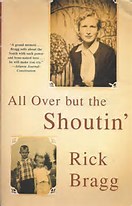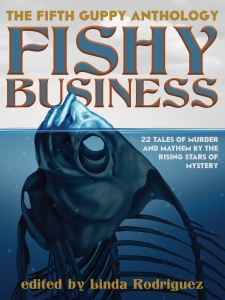 In a recent issue of Southern Living magazine, Rick Bragg published a column about a Southern character from his childhood that everyone simply knew as “The Goat Man.” This itinerant fellow traveled about the South with a herd of goats. Bragg had encountered him in Alabama in 1965. Coincidentally, I also had an encounter with The Goat Man a couple years later, perhaps in 1967 or 1968, in Georgia. The difference is that Bragg turned this incident into a salable essay, while I merely filed it away in my memory. And that’s part of what makes Bragg the excellent and prolific writer that he is. He heeds, curates and uses moments from his experiences consistently in his professional life. He sees their value as creative jumping off places for his work, and employs them when the opportunity arises. Which, in this case, I did not.
In a recent issue of Southern Living magazine, Rick Bragg published a column about a Southern character from his childhood that everyone simply knew as “The Goat Man.” This itinerant fellow traveled about the South with a herd of goats. Bragg had encountered him in Alabama in 1965. Coincidentally, I also had an encounter with The Goat Man a couple years later, perhaps in 1967 or 1968, in Georgia. The difference is that Bragg turned this incident into a salable essay, while I merely filed it away in my memory. And that’s part of what makes Bragg the excellent and prolific writer that he is. He heeds, curates and uses moments from his experiences consistently in his professional life. He sees their value as creative jumping off places for his work, and employs them when the opportunity arises. Which, in this case, I did not.
In my defense, I was only tagging along with a local radio reporter when he went to interview The Goat Man on a live, remote radio broadcast, from the grass verge of a country road. So it wasn’t really my experience. And whereas Bragg used his essay to reflect and comment on small towns, time and change, if I were to write up the incident, it would be about that reporter, his ambitions, and the tiny radio station where he hoped to get his start. Whether it would end up being a viable story (it would have to be fiction), who knows. But it’s a reminder to me that stories are everywhere, if we only see their possibilities, as Bragg did and does.
Bragg’s and my dissimilar responses to the encounter with The Goat Man also illustrates another point. Many experiences are common to everyone, and to every writer. Sure, there are the universal ones, birth, death, love, sex, grief, hunger and loneliness. But other less vital events also happen to lots of people. Book clubs, dinner parties, birthdays, paper cuts, a sleepless night. What makes us unique as writers is that we each interpret every happening in a diverse way. We shape our perceptions into art using eclectic voices, forms, tones, and with distinct outcomes. A single experience in different artistic hands can end up as a comic essay, a heart wrenching sonnet, a how-to article or the basis for a family saga. I’m no Rick Bragg, but I don’t need to be. The delight about being a writer is that there is room for all of us.
If you haven’t read Rick Bragg, I highly recommend his superb memoir, All Over but the Shouting.





